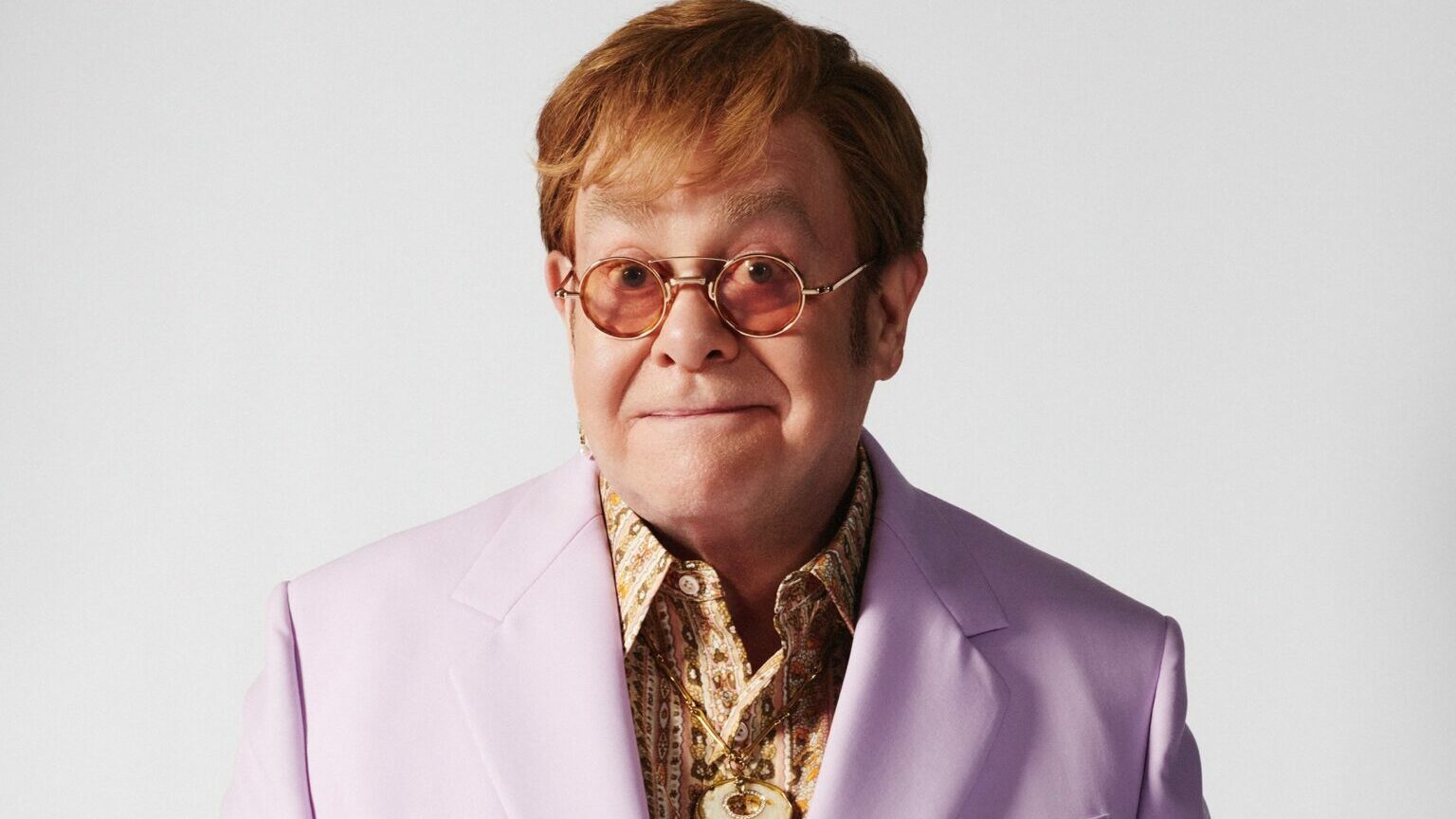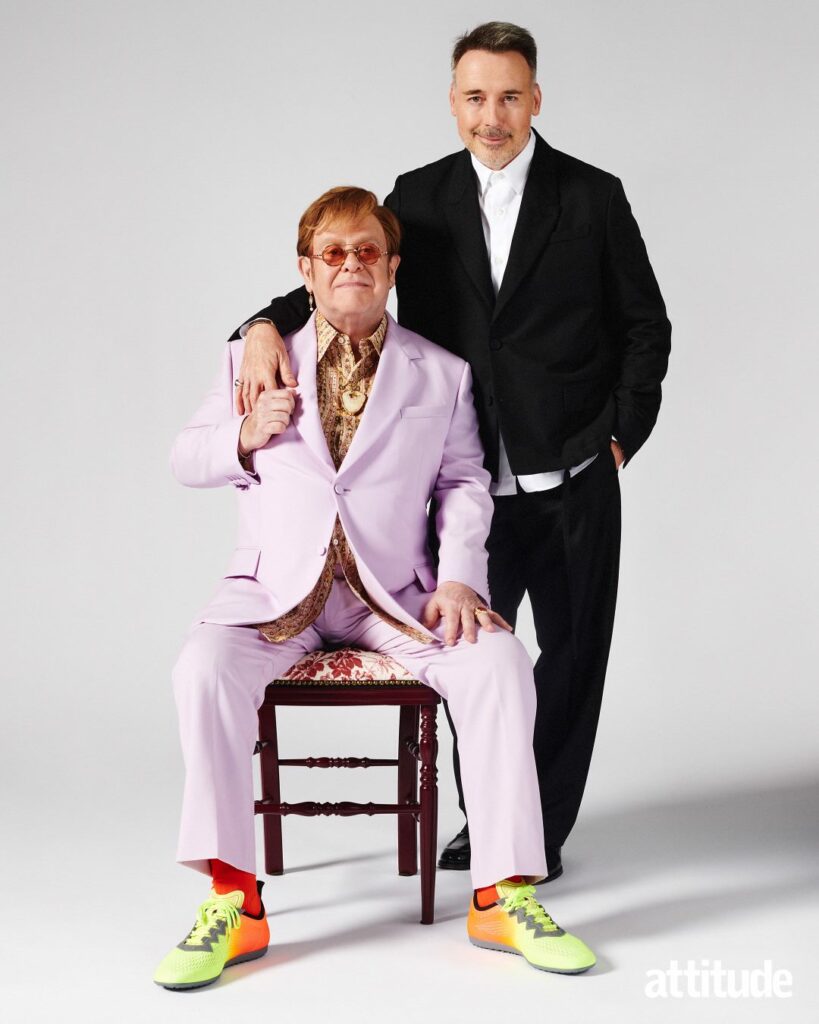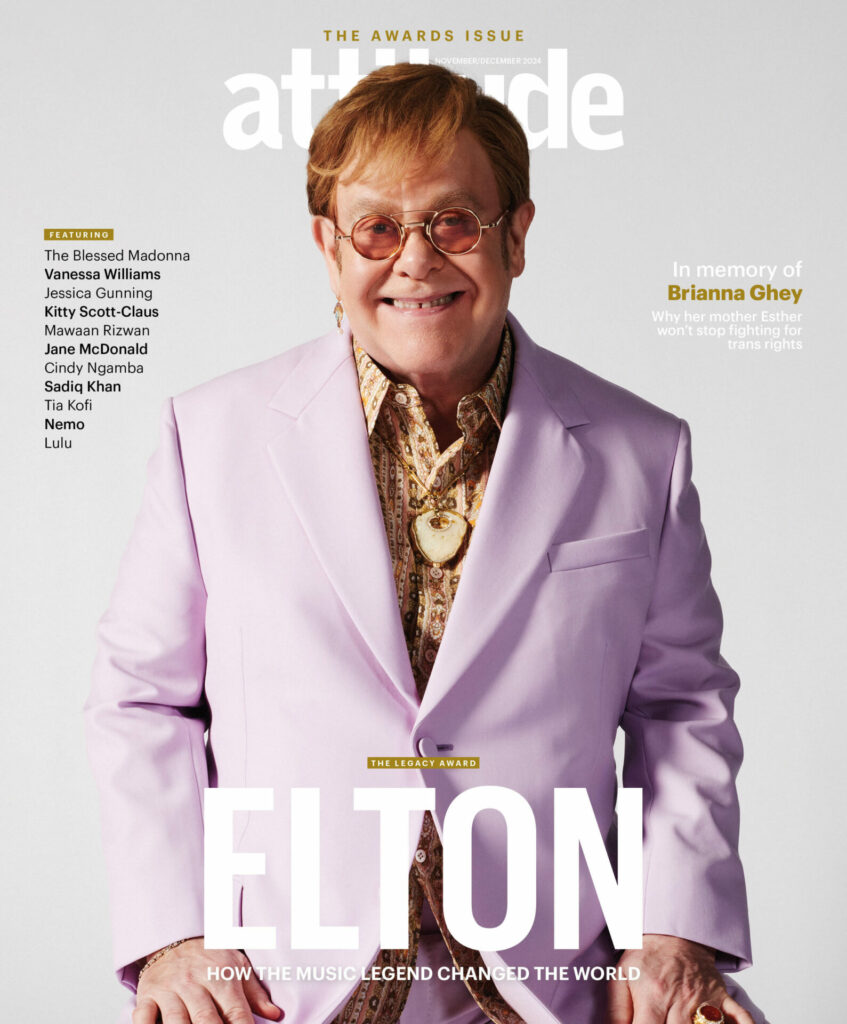Elton John on legacy, philanthropy, and dancing at Studio 54: ‘I’ve done all there is to do’
In this exclusive interview, the recipient of the Legacy Award supported by Virgin Atlantic, at the Virgin Atlantic Attitude Awards, powered by Jaguar talks the joy of being gay, fatherhood, and ending his touring career

Ten UK number one songs (and the first to have a Top 10 single in six different decades), eight UK number one albums, five Grammys, two Oscars (for Best Original Song), an Emmy, and a Tony Award, Elton John‘s achievements as one of the UK’s finest music artists feel almost limitless.
It’s for these reasons and many more that Elton John has received the prestigious Legacy Award, supported by Virgin Atlantic, at the Virgin Atlantic Attitude Awards, powered by Jaguar. This is only the second such award to ever have been offered in the event’s 13-year history. The first Legacy Award was collected by Prince Harry in 2017 to celebrate his mother, the late Princess Diana, in memory of her allyship and how she changed the perception of HIV by visiting AIDS wards in the late 80s.
Beyond music, Elton John is a figurehead of the UK gay community. As an activist, his Elton John AIDs Foundation has raised over $600 million to support over 3,100 projects in 95 countries globally to end AIDS, and as a generous spirit he has reached out to those in pain. But he is also no saint — and for that we love him.
In these extracts from an intimate interview at his home in Windsor, Elton talks candidly about the highs and lows of his life — from his struggles with addiction, relationships and his own self-image to how becoming a father transformed his world. With The Devil Wears Prada, a new musical for which he wrote the music, opening in October and a new documentary Elton John: Never Too Late coming in December, his story is far from over. For now, Elton, we thank you for the music, and so much more.
Elton John on the joy of being gay and coming out publicly:
“It was like a freedom for me. There wasn’t any big guilt on my shoulders saying, ‘I’m gay, I can’t come out.’ I was enjoying being gay and I’ve always enjoyed it since I came out the closet. I love being gay. I can’t tell you how much I love it.”
Elton John on how getting sober gave him the clarity to find love:
“In relationships before, I was a hostage taker. It was a conveyor belt of Versace shirts, cars… and I made a lot of people very unhappy, and so I had to change that. Sobriety helped me so much because you have to address your faults and you have to come clean about what your secrets are, and life is all about just learning all the time, not just myself artistically, but from a personal point of view.”
On the success of his relationship with David Furnish, whom he met in 1993:

“I think it is all about dialogue. I was never very good at communicating. I was terrified [of] confrontation. David’s very good at confrontation and telling me what he thinks, and we’ve done a lot of therapy. David got sober during our relationship. That was hard for him, and it was hard for me, but it was a necessary thing to do because it moved us on. As a rule, we don’t go to bed on an argument. If one of us is in a bad mood, we’ll say, ‘What’s wrong?’ We don’t go, ‘Oh, I don’t want talk about it now – talk in the morning.’ We never do that otherwise you can’t sleep all night, then you wake up in the morning, you think, ‘Oh God, what’s it all about?'”
Elton John on how having children changed his life:
“When David first started managing me and we were talking about a five or six-year plan, he said, ‘Well, you always said you were going to die on the stage because we didn’t have anything else.’ We were two affluent gay people going around the world with a nice philanthropic side to us, but there was no other purpose other than that. Having the children changed everything for the better because now it’s all about them. It’s all about their welfare and their future and it’s not about me and it’s not about him. We’re very comfortable in our relationship. We get better and better and better, but it’s the children that just really inspire us and it’s the most wonderful time of my life at the moment, and that’s pretty amazing.”
On his early days of coming out and club culture:
“It was the 70s and it was exciting. It was Club Studio 54, it was Crisco’s Disco, all the great gay clubs. We used to have a wonderful time together. They were exciting, incredibly hedonistic times. And, of course, then the grim ages appeared. But I lived through that time in the 70s, which we’ll never see again, I don’t think.”
Elton John on his activism and speaking out against injustice:
“I’ll always fight for freedom, and I always support someone who’s gone through a hard time because of the unfairness of it all, or with Matthew Shepard — just the viciousness.”
On ending his touring career:
“We went to Glastonbury, and we smashed it there, and when I did the last show in Stockholm, I got in the car and David said, ‘How do you feel?’ I went, ‘I’m so happy.’ I understand why Adele wants to stop because there’s more to life. I’ve done nearly over 5,000 shows in my life and I’ve done all there is to do, and so I just knew that my boys and David needed me, and I need them.”

This is an excerpt from an interview in the Attitude Awards issue 2024. To read the full interview, order your copy now or check out the Attitude app.
